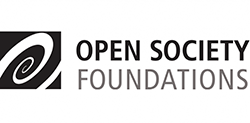OSF Grants

OSF-Grants to attend the AEDE Annual Meeting for Researchers from low- and middle-income countries
The Economics of Education Association (AEDE), thanks to the endowment of the Open Society Foundations (OSF), supports researchers from low- and middle-income countries with grants to attend the AEDE Annual Meeting. Applicants should be working on one or more of the following fields related to Economics of Education: demand for schooling, educational finance, equity and inequality, intergenerational mobility, management and educational planning, educational production, efficiency and productivity, education and labor market, human capital and economic growth, …
These grants defray accommodation and transportation costs and registration fees associated with attending the Meeting of Economics of Education Association. Selected researchers will be scheduled to present their paper during the meeting. The amount of grants awarded will depend on the number of applications received.
Preference is given to:
- Researchers residing and/or working in low-income countries (a list of qualifying countries according to the World Bank classification can be found below)
- Phd students (enrolled as a student in a master’s or doctoral program)
- Researchers working on inclusive education (from any kind of reason: disability, race, language, religion, gender, poverty, …)
- Please note that, if you were awarded a OSF grant in a previous AEDE conference, you will not be able to apply for the present conference.
Applicants must indicate their interests in applying for the grant clicking the corresponding box in the submission process. A complete application includes:
- The submission of a full paper (no longer than 40 pages, including tables, figures and references, adjusting to the format of the Call for papers for that AEDE conference)
- Certificate of enrollment as a student in a master’s or doctoral program for PhD students
- Certificate of residing and/or working in a low- or middle-income country
| Low income economies | ||
| Afganistan | Guinea-Bissau | Sierra Leone |
| Benin | Haiti | Somalia |
| Burkina Faso | Korea, Dem. People’s Rep. | South Sudan |
| Burudi | Liberia | Syrian Arab Republic |
| Central African Rep. | Madagascar | Tajikistan |
| Chad | Malawi | Tanzania |
| Congo, Dem.Rep. | Mali | Togo |
| Eritrea | Mozambique | Uganda |
| Ethiopia | Nepal | Yemen, Rep. |
| Gambia, The | Niger | |
| Guinea | Rwanda |
| Lower-middle income economies | ||
| Angola | India | Papua New Guinea |
| Bangladesh | Indonesia | Philippines |
| Buthan | Kenya | Sao Tomé and Principe |
| Bolivia | Kiribati | Senegal |
| Cabo Verde | Kyrgyz Republic | Solomon Islands |
| Cambodia | Lao PDR | Sudan |
| Cameroon | Lesotho | Timor-Leste |
| Comoros | Mauritania | Tunisia |
| Congo, Rep. | Micronesia, Fed. Sts. | Ukraine |
| Cote d’Ivoire | Moldova | Uzbekistan |
| Djibouti | Mongolia | Vanuatu |
| Egypt, Arab Rep. | Morocco | Vietnam |
| El Salvador | Myanmar | West Bank and Gaza |
| Eswatini | Nicaragua | Zambia |
| Ghana | Nigeria | Zimbabwe |
| Honduras | Pakistan |
| Upper-middle income economies | ||
| Albania | Fiji | Namibia |
| Algeria | Gabon | Nauru |
| American Samoa | Georgia | North Macedonia |
| Argentina | Grenada | Paraguay |
| Armenia | Guatemala | Peru |
| Azerbaijan | Guyana | Romania |
| Belarus | Iran, Islamic Rep. | Russian Federation |
| Belize | Iraq | Samoa |
| Bosnia and Herzegovina | Jamaica | Serbia |
| Botswana | Jordan | Sri Lanka |
| Brazil | Kazakhstan | South Africa |
| Bulgaria | Kosovo | St. Lucia |
| China | Lebanon | St. Vincent and the Grenadines |
| Colombia | Libya | Suriname |
| Costa Rica | Malaysia | Thailand |
| Cuba | Maldives | Tonga |
| Dominica | Marshall Islands | Turkey |
| Dominican Republic | Mauritius | Turkmenistan |
| Equatorial Guinea | Mexico | Tuvalu |
| Ecuador | Montenegro | Venezuela, RB |


